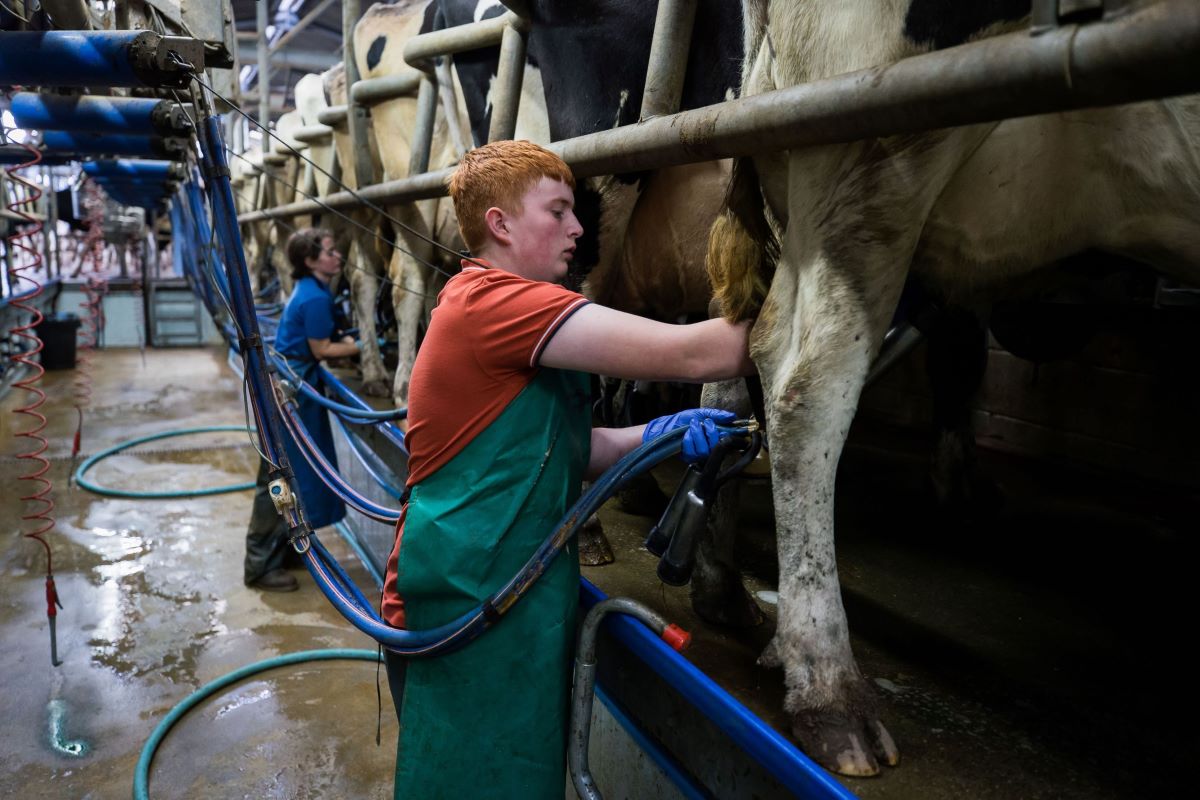Children’s Commissioner for England calls for Government and teaching unions to stop squabbling

Anne Longfield, Children’s Commissioner for England, is today (Saturday) intervening in the debate over whether some children should return to school on June 1 with a call for Government and teaching unions to ‘stop squabbling’ and to work constructively together to get children back in to the classroom as quickly as possible.
Her call comes as the Children’s Commissioner’s Office publishes new research showing how all but two out of 62 nurseries attached to NHS hospitals in England have been able to stay open during the coronavirus lockdown. Only three of these nurseries reported a confirmed case of Covid-19 among children and none reported transmission between children in the nursery.
While the present scientific evidence cannot offer any guarantees around whether children are at risk from Covid-19, and whether reopening schools is completely safe, the Children’s Commissioner warns that decisions about returning children to school cannot wait until a vaccine is available. She calls for a constructive approach from Government and teaching unions to find a way forward based on testing, learning and controlling risk.
The briefing from the Children’s Commissioner points out that the scientific evidence on the safety of reopening schools is limited, and while some emerging evidence suggests that risks may be low, we will not be able to get to a point where we can definitely say – in advance – that it doesn’t pose a risk. Instead, the Children’s Commissioner’s Office has looked at the experiences of other countries who have allowed pupils to return and has conducted research to hear about the impact on staff and children in nurseries who have remained open during the lockdown, in order to help inform the debate.
While the evidence on the dangers to children of Covid-19 is not definitive, there is overwhelming evidence that prolonged periods out of school is extremely damaging for all children, but particularly so for vulnerable and disadvantaged children. There are 2.3 million children in England with a vulnerable family background, which includes around 2 million children living in a household where there is domestic abuse, parental substance misuse or parental mental health issues. In some local areas more than 1 in 5 children live with a family affected by one of these issues. These issues may have become more prevalent since lockdown started. For these children, school provides a crucial outlet and a means for any concerns and risks to be identified.
There are also real dangers of a ‘disadvantage gap’ – the disparity in learning and education outcomes between disadvantaged children and their more affluent peers. Disadvantaged children, already behind in terms of attainment, slip further behind during school holidays. It has previously been found that summer holidays already account for as much as two thirds of the attainment gap between rich and poor children at age 14. The implication is clear that keeping schools closed will worsen social mobility, and the future costs to the education system of attempting to rectify this may also be substantial.
There is the impact of lockdown on the mental health and wellbeing of children. We know that school closures have contributed to greater isolation and anxiety among children, especially because of the disruption to their education. A recent survey found that two-thirds of parents have concerns about their child’s mental health.
To help inform the debate about safety in schools, the Children’s Commissioner Office has spoken to 39 of the 57 managers of NHS nurseries attached to hospitals in England and currently open. The children attending these nurseries are generally from families with health workers. Our survey showed that on average the nurseries were operating at around 46% capacity.
The nurseries told us:
- They have been encouraging parents to keep children home as much as possible and have taken in additional key worker children whose usual nursery have closed.
- Around 84 per cent of their staff are currently coming in to work, while 8 per cent are shielding or unavailable.
- 5 of the 47 nurseries reported not being able to access tests for Covid-19
- Just three nurseries reported a confirmed case of Covid-19 among children and a further eight reported a suspected case, but none reported any transmission occurring in the nursery.
- Half of these nurseries (19 out of 39) reported suspected or confirmed cases of Covid-19 among the staff. However none of them reported that staff had got Covid-19 from the nursery: 9 did not know where the staff got it from while the rest explicitly said it was not from the nursery.
One nursery manager told us:
“Although children are thought to be super spreaders, so far this has not been our experience. Several of our parents have been off with Covid so children have been excluded for 14 days obviously, but no outbreaks with children or staff within the nursery. My main concern is the worries of the staff and supporting their mental health in these circumstances.”
Another said:
“The challenge is the rug is pulled out from under you – one minute life was all normal, then we had this situation where everything was changing, everything was a bit uncertain, you’ve had to respond to those changes and different ways of working .. we had a few staff that felt anxious about coming into work but they’ve felt assured by the control measures.”
The Children’s Commissioner accepts that there is no 100% safe option in the absence of a Covid-19 vaccine. Maintaining social distancing among very young children is clearly not feasible or practical, but in other countries where nurseries or primary schools have already reopened, we know that risks have been managed by:
- Staggering drop-off and pick-up times
- Regular handwashing and hand sanitising and not allowing children to bring in toys from home
- Keeping children in small groups of 4-6 with one teacher per group, and not interacting with children in other groups.
- Doing sessions outside where possible
- Not allowing parents to enter the building and social distancing of parents at school gates
The Children’s Commissioner believes the most important safety mitigation is that incremental expansions of nurseries or primary schools should be accompanied by large-scale studies that involve regular testing of the children, their families and their teachers (symptomatic or otherwise). This goes beyond the Government’s existing guidance.
Anne Longfield, Children’s Commissioner for England, said:
“I am disappointed that the debate about when some primary school kids can return has descended into a squabble between Government and the teaching unions. All sides need to show a greater will to work together in the interests of children.
“We know there are thousands of vulnerable children who need to be in school. We know that the longer schools are closed the greater the impact will be on social mobility and that many children are really struggling without seeing their friends and the structure that school brings. We need to face the reality that, for a number of reasons, there are hundreds of thousands of children who can’t access meaningful education at home.
“The decision to bring back children from Reception, Year 1 and Year 6 first is sensible, as these are the year groups who need to be in school most urgently. But we should have an aspiration that all children return to school in some form before the summer and that school buildings are used for activities, summer schools and family support over the holidays. It is now up to the Government and the teaching unions to work together, along with the many teachers who are not in unions, to find solutions in the best interests of children and make this work – while doing all they can keep children and staff safe.
“We cannot afford to wait for a vaccine, which may never arrive, before children are back in school. It’s time to stop squabbling and agree a staggered, safe return that is accompanied by rigorous testing of teachers, children and families.”
Dr Mary Bousted, Joint General Secretary of the National Education Union, said:
“The NEU understands the importance of education to all children and particularly the most vulnerable. That is why teachers, leaders and support staff have been working throughout the pandemic caring for vulnerable children in schools and supporting children learning at home.
“We all want schools to open – as soon as it is safe to do so. The NEU’s five tests do not require a vaccine, which will be many months away. Today the government responded to our tests. We will look at the evidence supporting their response and make an informed judgement as to what extent they have been met.
“We think it is very important that anecdote does not replace evidence in this pandemic. Today the British Medical Association supported our five tests. The BMA’s Public Health Medicine Committee said that ‘until we have got the case numbers much lower, we should not consider re-opening schools.”
The Children’s Commissioner’s briefing is available to download here: We don’t need no education?
The thorny issue of whether children should go back to school
Should children go back to school? Is it safe for them to venture out of their homes and sit in a classroom with their friends? And is it safe for the adults around them? These questions have formed part of the debate around Coronavirus ever since lockdown was announced on 23 March, and were thrust back into the spotlight when the government confirmed that pupils in Reception, Year 1 and Year 6 can go back to school from 1 June. This follows a number of other countries: young children have started going back to school in France, Germany, Switzerland, Australia and the Netherlands, while in Denmark nurseries and primary schools have been open for a month. In Estonia, Iceland and Sweden, meanwhile, schools have remained open throughout.
The Government’s announcement has invited controversy and opposition from some quarters. Parents, meanwhile, are understandably concerned and conflicted. A recent survey found that only 1 in 5 parents would follow the government’s public health advice, a similar proportion would only listen to the advice from teachers, while 1 in 10 parents were in favour of keeping their children at home until everyone at their child’s school has been vaccinated. On the other hand, a third of parents responding to the survey indicated that they did not feel confident supporting their child’s learning at home. Parents were more likely to report being concerned about the effects of isolation on their child than the risk of someone in their family catching Covid-19.
The government says it is “following the science”, but there are limits to how far this strategy can be effective as the science is neither deterministic nor conclusive. At present, the scientific evidence cannot offer any guarantees around whether children are at risk from Covid-19, and whether reopening schools is completely ‘safe’, and it is unlikely ever to provide such certainty. Yet decisions about returning children to school cannot wait until a vaccine is available. These decisions – and the debates around them – need to accept and respond to inherent uncertainties. A way forward is possible, but only if we continually learn and test, control risk in real time, and focus on what is more likely to be optimal for whom.











Responses